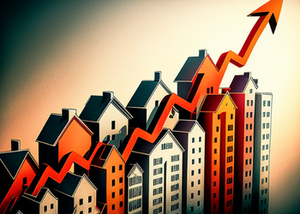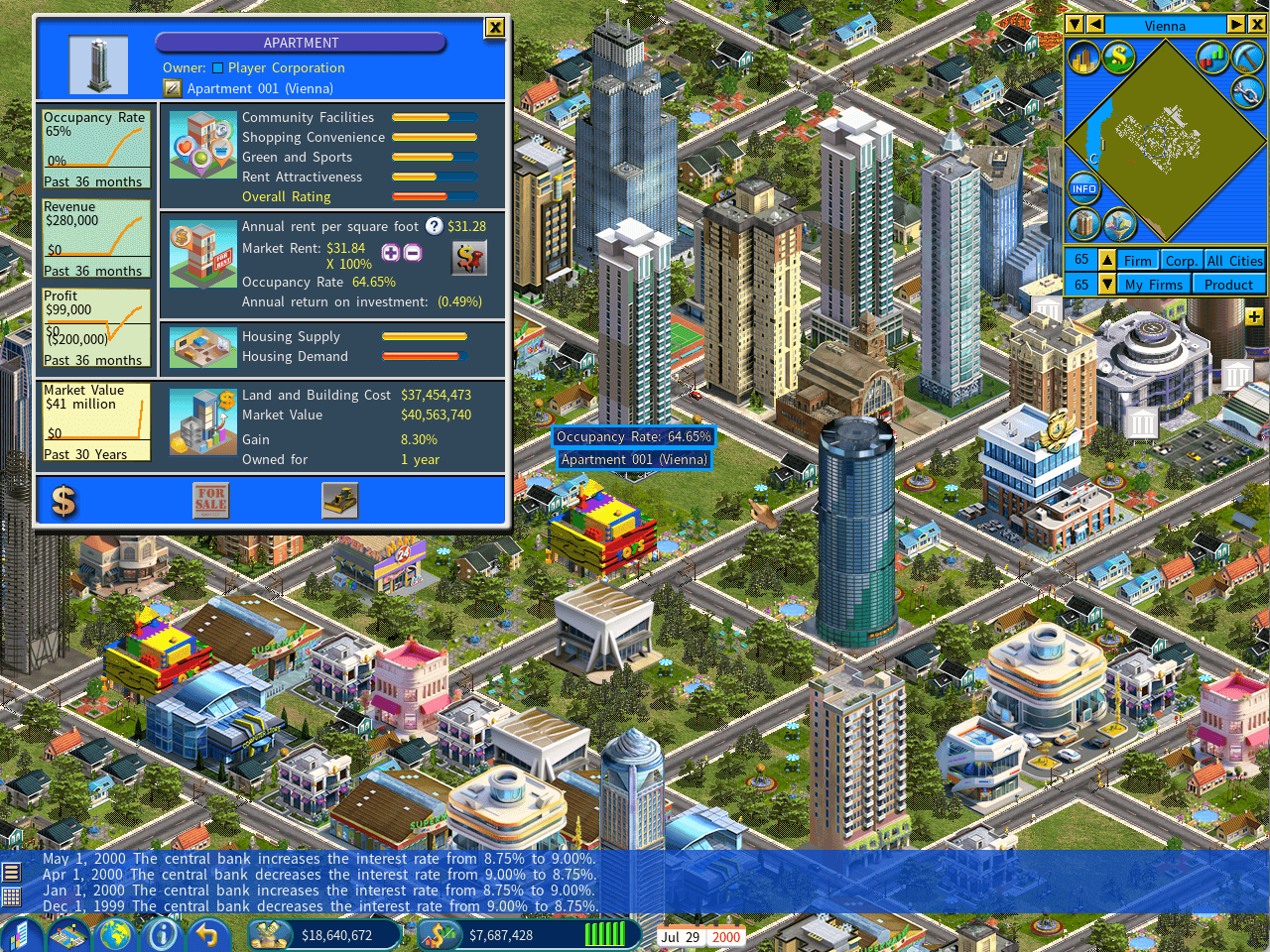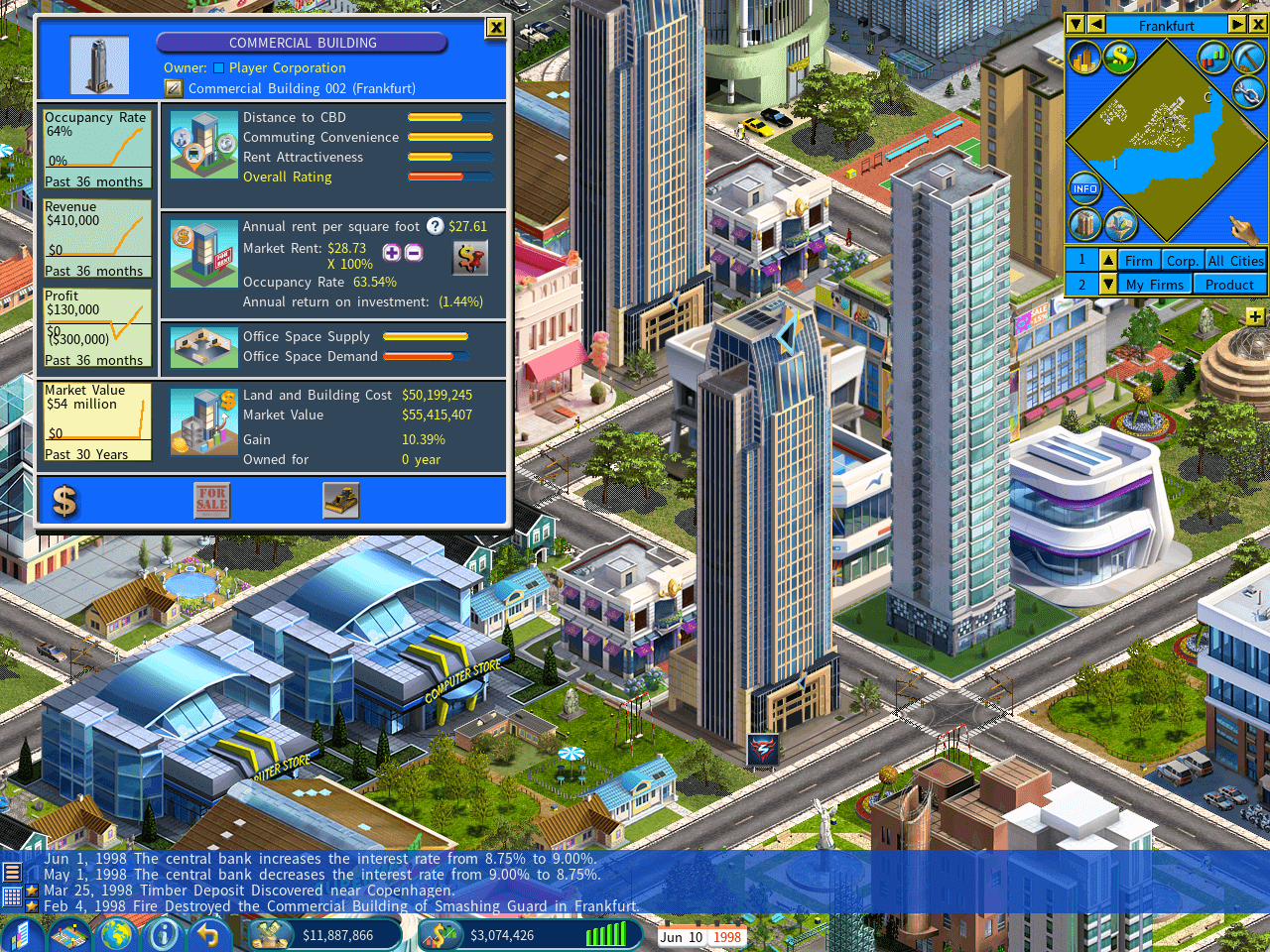Enhanced Simulation of Apartments and Commercial Buildings
Take your business empire to new heights with Capitalism Lab’s robust real estate investment options:
• Diverse Portfolio: Invest in apartments and commercial buildings to generate steady income streams.
• Location Matters: Analyze neighborhoods and economic trends to pick prime properties.
• Rent Management: Set competitive rental rates to maximize occupancy rates.
• Market Dynamics: Navigate realistic property value fluctuations influenced by supply, demand, and economic factors.
• Leveraged Expansion: Leverage loans to expand your real estate holdings strategically.
Apartments
The rents and market values of apartments are affected by:
1) The state of the economy. When the economy is booming, housing prices go up.

2) People are willing to pay higher rents for apartments with good access to community and sports facilities, a green environment and good shopping convenience. You can see the ratings of these factors in the Apartment Info window, as shown in the following screenshot.

Commercial Buildings
The rents and market values of commercial buildings are affected by:
1) The state of the economy. When the economy is booming, prices and rents of commercial buildings go up.
2) Companies are willing to pay higher rents for commercial buildings located in the central business district (CBD). Commuting convenience is another factor that citizens consider. Commercial buildings that are remote from residential areas tend to have low occupancy rates.

Real Estate Bubble

The real estate prices tend to rise when the interest rate is low. People can afford housing mortgage more easily when the mortgage rate is low. Likewise, when putting money in bank deposits yields little interest returns, people will look for investment opportunities, including investing in the property market for higher yields from rental incomes.
A booming economy with high GDP growth also spurs people to invest more aggressively in all kinds of assets, including real estate.
When the economy is already experiencing high GDP growth, driving property prices high, and the central bank compounds the effect by keeping the interest rate low, a real estate bubble may occur.
Though, the above scenario is not common, as high GDP growth spurs inflation and the central bank is likely to react by hiking the interest rate. However, in the rare circumstance where high GDP growth has not caused notable inflation, the interest rate may remain low for an extending period of time, thus providing a perfect ground for a real estate bubble to develop.
Also see:
The Evolution of Shanghai from 1990 to 2010 – showing a scenario where the player acquires a large piece of land and develops a new residential area from the ground up.
